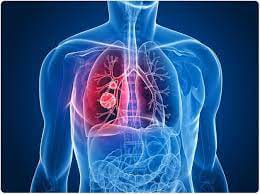How Accurate Is CT Scan For Lung Cancer?

Cancer, also known in scientific terms as Neoplasia, is a term used to refer to the malignant proliferation of cells already present in the body. In simple terms, cancer is when the body’s normal cells that are going through proper, well-defined development start to act differently and start growing abnormally. Cancerous cells begin to take nutrients that they do not need and deserve in other tissues of the body, making the different parts of the body weaken and compromise.
Cancer used to be thought to be something inevitable once it starts in the body because of poor treatment and preventive plans. Now, due to significant advancements in the field of medicine, scientists are competent to treat cancers and increase the life of patients through cancer treatments such as chemotherapy and other available techniques.
What Do We Know About Cancer?
There are different types of cancers; almost any part of the body can be cancerous, like lung, intestinal, or colorectal cancers, and be asymptomatic in the initial stages, where cancerous treatment can potentially show results. Once cancer reaches a stage where it is incurable, its treatment becomes complicated, and the prognosis is terrible.
The only key to completely eradicating cancers is to catch them early on through different types of screening procedures like:
- CT Lung cancer screening
- Nuclear Lung Screening
Apart from stated lung scan procedures, other simple procedures like chest X-rays and sputum cytology can also be done to screen for lung scanning.
Common symptoms to look for if you suspect lung cancer
Unfortunately, there aren’t any prominent symptoms you can look for in diagnosing cancer; the symptoms present are vague and might be thought of as nothing serious at times. However, the symptoms listed below might be of help in hinting you towards cancers:
- Persistent cough: A persistent new cough that is not going away. You’ve tried your cough syrups and lozenges, but it’s still there and not getting better.
- Hemoptysis: It means coughing with blood. If you’re coughing, there’s a tinge of blood coming in your sputum. It might be suggestive of Cancer.
- Shortness of breath: If there’s a tumor along your airway, like the lungs, this can obstruct your airway and present as shortness of breath, known as dyspnea.
- Whistling sounds: There might be a whistling sound known as wheezing when taking breaths. This can be a common cancer symptom as well.
Prevention is better than cure
We have heard this quote often that prevention is better than cure. When it comes to Lung cancers, it really is. Prevention of cancer is more manageable than actually treating it, and it’s a lot more affordable, too. The first thing that every doctor or any person will ask you would be, please don’t smoke and stay away from the smoke that is coming out of the cigarettes, as second-hand smoking can prove more fatal than smoking yourself.
Checking Radon levels
Check for radon wherever you’re living. Radon is an invisible and odorless gas that can enter your homes through cracks and holes and build to levels that can seriously harm your health and move you a step closer to lung cancer.
Other Gases
Not just radon but other occupational gases that you may get exposed to due to your work or passing through any factory that is producing such carcinogens like asbestos, arsenic, silica dust, etc, can expose you to cancer as well.
Genetic Link
People are more prone to cancer if they have it in their family, like first relatives, i.e., parents or children, etc. Hence, such people should take extra care and go through routine checkups at least twice a year to be sure that there isn’t anything wrong with their health.
Are scans like CT scans accurate for lung Cancers?
Many types of scanning are being done now in the country for detecting and diagnosing cancers, like CT Lung cancer screening and Nuclear screening, but one of the most accurate screening for lung cancers is a CT scan. Through CT scans, doctors can find cancers that are a few millimeters very accurately. CT scans have a sensitivity of about 90 percent and can accurately detect people with cancers 9 out of 10 times. Moreover, a CT scan has a specificity of 95 percent.
During screening tests for preventive reasons, a CT scan provides a positive predictive value of 80 percent in people who are more at risk, which means the probability of getting the disease after getting the positive result, like smokers, and when it comes to a negative predictive value which means the likelihood of someone getting the disease after negative results of the tests are 99 percent.
Such tests can help people to stay away from hospitals in the long run by catching cancers early and treating them early before it gets to a stage where getting back to normal might be hard or impossible.








